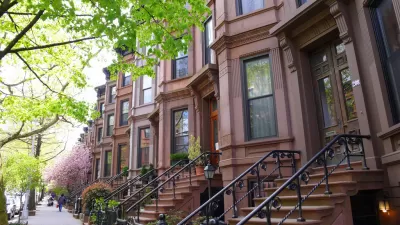Amidst a crisis of housing affordability around the country, one media organization is leveraging public records law to discover answers to questions, long obscured from the public, about who controls the real estate market.

Jade Hindmon and Marissa Cabrera report:
The debate over California's housing crisis tends to center on the lack of housing and how much more housing needs to be built to meet demand.
But there's another part of the conversation that often gets left out. It has to do with who owns the housing that already exists.
Another journalist, Aaron Glantz, is leveraging public records to fill gaps in public knowledge about the real estate market. Glantz and colleagues at Reveal have sued the Treasury Department to find out more about the "secret landlords" controlling the housing market.
An article by Glantz, written in December, provides more information about what we do know about how anonymous shell companies hide their wealth in real estate:
All-cash transactions have come to account for a quarter of all residential real estate purchases, “totaling hundreds of billions of dollars nationwide,” the Financial Crimes Enforcement Network – the financial crimes unit of the federal Treasury Department, also known as FinCEN – noted in a 2017 news release. Thanks to the Bank Secrecy Act, a 1970 anti-money-laundering law, the agency is able to learn who owns many of these properties. In high-cost cities such as New York, San Francisco, Los Angeles and Miami, it’s flagged over 30% of cash purchases as suspicious transactions. But FinCEN also cites this bill to hide this information from the public, leaving the American people increasingly in the dark about who owns their cities.
The article linked below includes an interview with Glantz for Midday Edition, a show airing on KPBS in San Diego.
FULL STORY: Public Radio Program Sues To Uncover Secret Landlords Buying Up America’s Cities

Alabama: Trump Terminates Settlements for Black Communities Harmed By Raw Sewage
Trump deemed the landmark civil rights agreement “illegal DEI and environmental justice policy.”

Planetizen Federal Action Tracker
A weekly monitor of how Trump’s orders and actions are impacting planners and planning in America.

How Atlanta Built 7,000 Housing Units in 3 Years
The city’s comprehensive, neighborhood-focused housing strategy focuses on identifying properties and land that can be repurposed for housing and encouraging development in underserved neighborhoods.

In Both Crashes and Crime, Public Transportation is Far Safer than Driving
Contrary to popular assumptions, public transportation has far lower crash and crime rates than automobile travel. For safer communities, improve and encourage transit travel.

Report: Zoning Reforms Should Complement Nashville’s Ambitious Transit Plan
Without reform, restrictive zoning codes will limit the impact of the city’s planned transit expansion and could exclude some of the residents who depend on transit the most.

Judge Orders Release of Frozen IRA, IIJA Funding
The decision is a victory for environmental groups who charged that freezing funds for critical infrastructure and disaster response programs caused “real and irreparable harm” to communities.
Urban Design for Planners 1: Software Tools
This six-course series explores essential urban design concepts using open source software and equips planners with the tools they need to participate fully in the urban design process.
Planning for Universal Design
Learn the tools for implementing Universal Design in planning regulations.
Jessamine County Fiscal Court
Caltrans
Institute for Housing and Urban Development Studies (IHS)
City of Grandview
Harvard GSD Executive Education
Toledo-Lucas County Plan Commissions
Salt Lake City
NYU Wagner Graduate School of Public Service



























